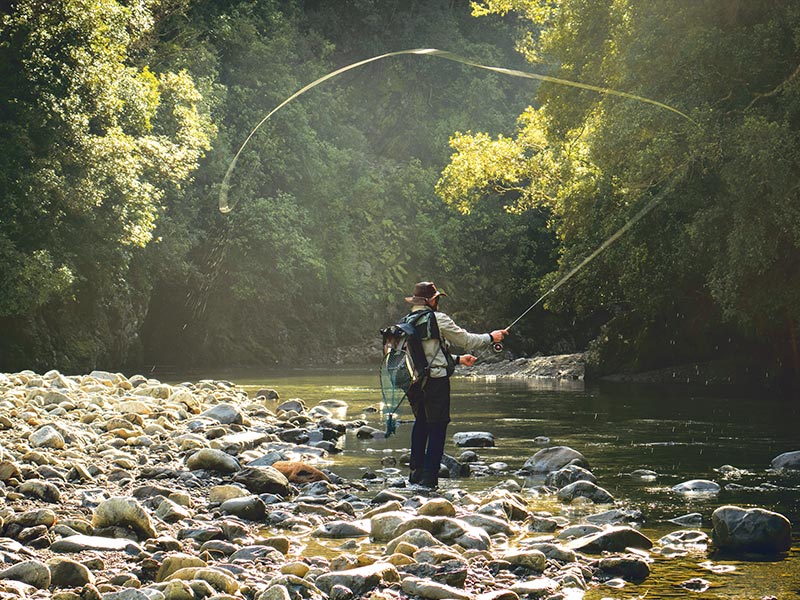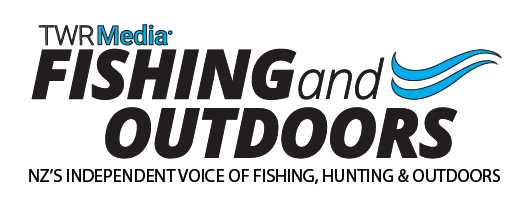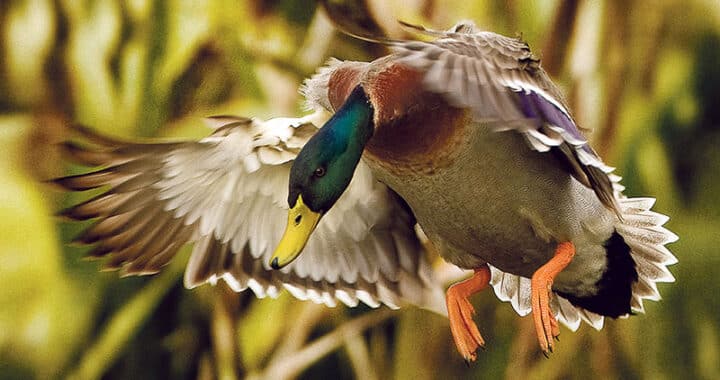National to establish a new minister for hunting and fishing
3 min read
Under the proposed plan, National Party says it will support Fish & Game New Zealand and protect trout and salmon fishing. Photo: Adobe Stock
The hunting and fishing community is welcoming the National Party’s recently unveiled plan, which promises to bolster the interests of recreational hunters and anglers across New Zealand.
The policy, presented in July by the party’s hunting and fishing spokesperson, Todd McClay, outlines a series of measures that the party says will support outdoor enthusiasts.
Under the proposed plan, the National Party intends to establish a “minister for hunting and fishing, change the law so game animals are not pests, and guarantee access to public land for hunting and fishing”.
“This package supports recreational hunters and fishers across the country and will be achieved within existing resources by partnering with community groups,” McClay said.
The policy also aims to strengthen the Game Animal Council, designate ‘herds of special interest’, establish the ‘Huts of Recreational Importance’ Partnership to maintain huts in the DOC estate, support Fish & Game New Zealand and protect trout and salmon fishing, and not introduce recreational licences for game animal hunting or sea fishing.
“We are particularly pleased the National Party’s policy includes permanent seats for hunting and fishing on the Conservation Authority and Conservation Boards. Our anglers and hunters are at the vanguard of the country’s conservation efforts and deserve a greater voice and greater credit for their massive contribution,” said Corina Jordan, chief executive of Fish & Game NZ.
Jordan said it was encouraging that the policy recognises there is a place in New Zealand’s eco-system for valued introduced species such as game birds, trout, and salmon alongside other waterfowl and freshwater species.
“Trout and salmon have some of the highest freshwater quality and quantity requirements out of our freshwater species. This has enabled Fish & Game to argue for water quality and quantity standards that have protected not just the species under our jurisdiction but all freshwater species, including those that
are taonga and valued by mana whenua.”
Anglers and hunters are dedicated nature lovers and conservationists, protecting and re-wilding New Zealand’s natural habitats, which is so important for future generations, Jordan said.

“Fish & Game and our licence holders are the country’s leading freshwater champions. We have an outstanding record of achievements in protecting and enhancing the environment, including creating, restoring, and protecting wetlands.
“Fish & Game has been responsible for securing 12 of the 15 Water Conservation Orders, the highest level of protection that can be afforded to any water body.
“We have fought long and hard to protect our outstanding water bodies from pollution and exploitation, so they are safe for swimming, gathering food, and fishing. It is critical New Zealand’s policy settings reflect this and allow the vital work to continue.
The New Zealand Deerstalkers Association also welcomed the policy, with chief executive Gwyn Thurlow saying hunting and fishing are not “mere pastimes”.
“National’s proposal to establish a dedicated minister for hunting and fishing demonstrates the party’s understanding of the profound impact that these activities have on our society. This dedicated role will serve as a strong representative for hunters and fishers and ensure the sector’s voice will be heard at the Cabinet table.”
She said NZDA was pleased to see National’s commitment to formally classifying deer tahr, chamois, and wild pigs as game animals.
“The Aotearoa New Zealand Biodiversity Strategy 2020 has determined these are valued introduced species alongside others such as trout and salmon. Unfortunately, there is a high degree of inconsistency across legislation and planning documents, which not only disregards the value of these animals to New Zealanders, but hinders their management,” Gwyn said.
“National’s approach rightly recognises that hunters are the key to the future management of these animals and sets the stage for a more harmonious coexistence between conservation, commercial, mahinga kai and recreational activities.”



